In the constantly evolving world of digital marketing, excelling in the ‘no-click’ search game is crucial for success. As we prepare for 2024, understanding how these searches can impact event marketing strategies is essential. Users now visit search result pages and get all the information they need without clicking through to a website this is the essence of no-click searches. It requires us to rethink how we promote our events digitally.
By optimizing for no-click search results, we can ensure our events stand out when users see them. This means creating concise, detailed snippets that directly address searchers’ queries about events like yours right on the Google results page. As search engines become more sophisticated, so must we. So, how do we capitalize on this trend to increase visibility and engagement around our events in an increasingly competitive digital world? Incorporating artificial intelligence for sales and marketing can play a pivotal role in refining strategies that help us stay ahead in this evolving landscape.
What Are ‘No-Click’ Searches?
No-click searches occur when users find all the answers they need directly from the SERP (Search Engine Results Page) without clicking on any links. These searches have been rising, and by 2024, 60% of US and EU searchers will not click on any results. Knowledge panels and direct answer boxes provide the necessary information, significantly impacting event promotion. Our approach must shift toward offering the most relevant information upfront within these search features to capture users’ attention and eliminate further navigation.
Why ‘No-Click’ Searches Are Relevant for Events
No-click searches occur when users find all the answers they need directly from the SERP (Search Engine Results Page) without clicking on any links. These searches have been rising, and by 2024, 60% of US and EU searchers will not click on any results. Knowledge panels and direct answer boxes provide the necessary information, significantly impacting event promotion. Our approach must shift toward offering the most relevant information upfront within these search features to capture users’ attention and eliminate further navigation. For more insights on digital marketing strategies, visit https://aphexmedia.com/.
How to Optimize for Featured Snippets for Your Event

Featured snippets are critical for digital success in 2024. These compact, highly visible answers at the top of search results can boost your event’s exposure.
Crafting Engaging Content
Create content that immediately captures attention. Keep it clear and relevant to search queries. By using straightforward language and addressing user intent, you increase the chances of your event being featured in snippets.
Utilizing Structured Data
Structured data helps search engines understand your content better. Implementing structured event data ensures that your event details, such as dates and locations, are prioritized in search results, improving visibility.
Using Google Knowledge Panels
Ensuring Accurate Information
Ensure that all event information, including dates, locations, and ticketing, is accurate and up-to-date. Accuracy builds trust with users and caters to their immediate needs.
Enhancing Visual Content
High-quality photos and visuals enhance engagement with knowledge panels, making your event more appealing and increasing user interaction.
Maximizing Your Google Maps Presence

To dominate no-click searches in 2024, a strong presence on Google Maps is essential.
Confirming Your Business
Fully verify your Google My Business listing to ensure that your business details are accurate. Correct information lays the foundation for improved visibility.
Encouraging User Reviews
Encourage positive user reviews to enhance credibility. Reviews contribute to search rankings and help influence potential attendees.
Crafting a Killer Social Media Strategy
A robust social media strategy increases event visibility and drives engagement.
Aligning Events with Social Media
Align your events with top social platforms like Facebook and Instagram. Use these platforms to post event highlights and updates, making it easier for users to find and connect with your event.
Driving Social Media Activity
Build an online community by posting engaging content, such as live videos and behind-the-scenes material, to excite potential attendees.
Monitoring Performance Through Analysis
With no-click searches dominating the digital landscape, analyzing their impact on event marketing is crucial.
Using Analytics Tools
Tools like Google Analytics and SEMrush provide valuable data to monitor the performance of no-click searches. Tracking keyword performance helps reveal user behavior and refine your strategy.
Fine-Tuning Strategies Based on Insights
Use data-driven insights to adjust your event marketing strategy. Continuous tracking and optimization ensure that your content remains aligned with user intent, improving engagement.
Conclusion
As we approach 2024, mastering no-click searches will be vital for successful event marketing. Tailor your strategy to create concise, impactful content that addresses user search queries. Utilizing tools like featured snippets, Google Knowledge Panels, and Google Maps will ensure your events show up prominently in search results.
Focus on structured data, visual content, and social media engagement to maintain digital relevance. By following these tactics and regularly analyzing performance metrics, you can lead the no-click search game and effectively engage your audience.
